Fernando Villavicencio, who was running for president of Ecuador on an anti-corruption platform, was assassinated in broad daylight on August 9th. Who stands to benefit from the assassination, and what does this mean for the upcoming August 20th presidential election? Joe Emersberger, a long-time analyst of Ecuadoran politics, discusses the situation.
Greg Wilpert
Welcome to The World On Fire. I’m your host, Greg Wilpert. A prominent candidate for the presidency of Ecuador, Fernando Villavicencio, was assassinated on Wednesday, August 9, as he was leaving a campaign rally. The assassination shocked Ecuador, which has already been reeling from sky-high crime rates and the assassination of the mayor of the Ecuadorian town of Manta just a month ago.
On Thursday, government representatives stated that eight Colombians had been arrested for organizing the assassination and that the person who shot Villavicencio was killed in the shootout following the assassination. The government further stated that the suspects had ties with organized crime in Ecuador.
Ecuador is in the midst of a presidential campaign to complete the term of President Guillermo Lasso, who dissolved the legislature shortly before he was scheduled to be impeached on corruption charges. The move also triggered a new presidential election in which Lasso is not running for re-election.
Joining me now to discuss the latest developments in Ecuador is Joe Emersberger. Joe is a Canadian engineer with Ecuadorian roots, who has often written for FAIR and Znet, among other publications, and also has a new Substack page. Thanks, Joe, for joining me today.
Joe Emersberger
Thank you for inviting me.
Greg Wilpert
Let’s start with Fernando Villavicencio. Who was he, and whose interests in politics did he represent? What was his presidential campaign about?
Joe Emersberger
He’s a right-wing candidate. He’s a long-time enemy of [Rafael] Correa’s government, which was the left-wing government in power from 2007 to 2017. He always had a little bit of a flirtation with left-ish movements. He was a former trade union person, and he was apparently one of the founders of the political wing of CONAIE, the indigenous movement’s political wing, which is called Pachakutik. That party has always been to the Right of CONAIE. For whatever reason, there has always been a disconnect between CONAIE’s discourse and Pachakutik’s. In office, their politicians have always swung to the Right. Villavicencio was involved with that.
Recently, he got elected to Congress in 2021. He was basically allied with Guillermo Lasso, the right-wing President. Now, in fact, he made maneuvers to try to obstruct the impeachment of Lasso, which was underway shortly before the elections were called. So he’s basically a right-wing actor, although he’s flirted with leftist rhetoric and organization in the past.
His other claim to fame is that he was briefly an author of a hit piece that The Guardian put out against Julian Assange, claiming that he had met with Paul Manafort, [Donald] Trump’s campaign manager, that he had met with him in the Ecuador Embassy, which was an absolutely outrageous story. The Guardian ended up peppering it with weasel words, editing it after the fact to protect themselves from lawsuits. His name appeared on the byline of that article for a while, and then he was removed. That was before he got into politics again.
He declared himself a journalist, and he was actually convicted, under Ecuadorian law, of libel as a criminal offence. So while Correa was in office, he actually got convicted of libel because he and a few other guys, well, they made some outrageous allegations saying that Correa had ordered police to shoot at a hospital. It was outrageous, and he was convicted for that. That became another reason he got some attention internationally because people rallied and they objected to the fact that libel was part of the criminal code in Ecuador. So that gained him some notoriety.
He was polling like fourth or fifth, very low. He was not a threat to do very well in the election. The election actually, according to the average of the latest polls before this incident, who knows how this will affect things, but it looked like Luisa González, the Correa-ist candidate, was poised to, based on an average of polls, very close to winning outright in the first round. We’ll see what happens and how the vote actually takes place now.
With his assassination, Lasso immediately announced a 60-day state of exception. That’s of concern to me because although they said, yeah, there is no way the elections are going forward, then how are they going to take advantage of the state of exception to perhaps suppress the vote in certain areas where they think Correa has a large number of supporters? How could they use these extra powers to tamper with the electoral process? That’s a concern I have.
Greg Wilpert
Yeah, that’s what I want to get into next. Basically, whose interests do you think Villavicencio’s assassination serves? Surely there are those who would like to pin the assassination on the Correa movement or on Correa himself, I imagine, because of the animosity that existed between Villavicencio and Correa.
I also find it interesting, and this may be a bit of a tangent, but I just saw an article that I think might have been from The New York Times that claimed that Villavicencio was charged for insulting the president, not liable, as you point out. So that’s a huge difference. Anyway, there was a pretty big animosity in any case, and he was, as you said, in prison briefly. Who do you think might have been behind it, and whose interest does this assassination serve?
Joe Emersberger
One thing to mention is that the people in charge of Villavicencio’s security is the Lasso government. He was one of the candidates who had protection provided by the government. As a presidential candidate, it is common sense; they get official protection from the government. There was a horrendous error. His own family has been absolutely, as you can imagine, livid, denouncing Lasso’s government. These errors in the security and the handling of his security were just inexcusable and multiple: where they let him leave the building, the fact that the car wasn’t bulletproof, and all sorts of basic errors in security. The family is livid. They wouldn’t let him see the body right away. They were denouncing that. The family’s been pointing the finger directly at Lasso, and he’s responsible for the security.
Immediately as soon as this happened, you see right-wing actors, including my own family, who support the Right, immediately calling for a military government. Those reflexive forces are unleashed by something like this.
There’s no advantage to Correa. First of all, they’re not in power. They don’t have control. Nobody has control of the police, apparently. It’s just a total free for all right now. Violent crime has gone up and quadrupled since 2017 when the right wing took power with their Trojan horse, [Lenín] Moreno. It’s been a catastrophe.
Who benefits? The chaos really tends to empower those forces who want to use this as a pretext to seize power. It’s what Lasso already tried to do with his referendum. He wanted to roll back. He wanted to try to have a referendum in February that was focused on crime. The typical solutions the right wing proposed, they created this problem of violent crime, and then their solutions were to give people guns and let the government extradite people. That seems to be the direction that the Right is trying to take. Trying to blame Correa, it’s outrageous, but they’ve made outrageous allegations against him before. That discourse will be out there.
For me, honestly, it’s hard to say. My concern is that the powers that they’ve given themselves now, with the state of exception, I worry about what they could try to pull with that in terms of voter suppression or a similar maneuver. That’s my concern. As I said, Villavicencio was a minor candidate, so if anything, his votes will probably get transferred to other right-wing candidates.
Greg Wilpert
Actually, that would probably benefit the Right then. One of the main issues, as you mentioned, is the skyrocketing crime rate, specifically the homicide rate. You wrote about this last February for an article in MintPress, how the international media keeps focusing on this issue. It’s been related also, I’ve seen, to the assassination, somehow that because of the high crime rate, that has something to do with Villavicencio’s assassination.
Talk a little bit about that record you just mentioned. Crime was actually lower during Correa, and why has it become such an issue, and how serious is it at the moment?
Joe Emersberger
Yeah, it’s an absolute catastrophe. When Correa left office, Ecuador was basically about the second most safe country in Latin America. It had a homicide rate of 5.8, or something like that, homicides per 100,000 people, which is about the level of the U.S. and Canada, more or less.
Now it’s important because this also gets distorted in the media. They always say Ecuador was once safe. That’s very misleading. In the late ’70s, early ’80s, yeah, it was very safe, but then you’re talking 40 years ago. From 1980 all the way right through to 2011, to the early years of Correa’s presidency, the homicide rate is constantly on an upswing. It was maybe about 5-6 in 1980, but by 2011, it had reached 17-18. Under Correa’s 10 years in office, it had gone all the way back down to under, as I say, about 5.8, under six. There was a reduction of two-thirds, a massive reduction. That’s unprecedented. The whole trajectory over those decades was upward. It was an upward trajectory in the homicide rate.
Correa had this remarkable achievement of bringing it down by two-thirds, and he did it without all the things that the right-wing always wants to suggest, without mass incarceration, without guns proliferating, without the death penalty, all the things that the right-wing people like to propose as solutions. He achieved that. Then as soon as Moreno took over and betrayed the movement that got him elected and he became basically a right-wing government, immediately you see that the upward trend in homicide starts very, very soon. Pretty much in 2018-2019, you already see an alarming upward trend, but then under Lasso, it’s just gone through the roof.
Now, as I mentioned, if it was 17 or 18 around 2011, in the early years of Correa’s office, when it peaked after a steady climb from 1980, by 2021, 2022, and 2023, now we’re up way beyond that. Now we’re up 25-26. Now it’s the highest it’s been in decades, a quadrupling of what it was since 2017.
The corporate media tends to distort this history. The record of the right-wing in Ecuador with homicide rate for the last 40 years has always been terrible. It’s always been an upward trend when they’re in office. They lack understanding. They don’t believe in a strong state. They don’t believe in funding things properly. They believe in letting things slide and letting rich people try to pay for their own security. It doesn’t even work for rich people. It hasn’t worked for anybody. Literally, nobody is safe in Ecuador.
The Correa’s themselves have had candidates assassinated in recent months as well. It’s not something that’s just affected any particular side of the political spectrum. It’s a general free for all at the moment. You have gangs giving press conferences from jail. The jails are out of control. Prison massacres are taking place because criminals have taken over the prison system.
Luisa González, Correa’s candidate, has been hammering at this constantly. Her point is constantly that the criminal elements in Ecuador have basically taken over the state. They’ve taken over the police, the prisons, and parts of the military. Even the U.S., who was very pro-Lasso, very supportive, there was a U.S. government official who made accusations from the embassy that drug dealers had infiltrated the police and stuff like that. There are a lot of problems that are just a total catastrophe.
As I said, the history tends to get distorted because if you look at the history, the right-wing has always been terrible on crime in Ecuador for the past 40 years.
Greg Wilpert
Related to that is certainly also the issue of corruption, which was Villavicencio’s main issue. It’s also always been portrayed that corruption was particularly bad under Correa, with him being sentenced in absentia while he was living in exile in Belgium. Then also, his Vice President, Jorge Glas, was imprisoned for corruption under the previous president, Lenín Moreno.
First of all, what’s the record there? As far as we can tell, of course, corruption is always more difficult to identify than homicide. What’s your sense of what’s happening? And then, of course, Lasso himself was also charged with corruption, which is one of the reasons we’re having this presidential election coming up. What’s your assessment there in terms of the record?
Joe Emersberger
Under Correa, there was a massive increase in public works. There were all sorts of projects for the huge improvement of roads, schools built, hospitals, and infrastructure like anti-flooding infrastructure. Eight hydroelectric plants were built. There was a huge, massive, really unprecedented investment in infrastructure and public works.
With that, it’s inevitable that there will be some shenanigans and things going on. Correa has never denied that there were some instances where things happened that this guy was pilfering and this guy was doing this. It was not at a level that actually impacted the macroeconomic benefits that the public received. It was inevitable as it was going to happen on some level, and that was going to be used later. It was blown up in a big show by the media, especially under Moreno, to use that as a basis for political persecution to say, aha, well, Correa’s sentence is that he had psychic influence. One of the things he’s been accused of is he had a psychic influence on any lower-level official who took a bribe. If you took that accusation seriously, there isn’t a single president anywhere in the world who couldn’t be sent to jail because corruption takes place. There are dirty cops. There are dirty officials under any government that ever existed. You could throw anybody in jail for that. That’s the approach they’ve taken.
Correa actually has political asylum in Belgium. The cases against him are ridiculous. Interpol is not a leftist organization. They’ve rejected, on human rights grounds, Ecuador’s request to extradite him. It’s a joke. As I said, like any propaganda, there are some elements. Was there corruption? Yeah, there was some corruption because there was such a massive investment in public works, and with that comes opportunities for some people to get in there and do some things. As I said, corruption was at a low level, and it did not impact the benefits that people received from those projects.
Also, it just doesn’t track with a corrupt government that has this unprecedented reduction in homicide rate, that cleaned up the police, that purged the police, that instituted polygraph tests for police to make sure that they weren’t compromised when they were hired. Would you commit a crime? Have you ever taken a bribe? Questions that put them on the spot right at the beginning before they could even be accepted. That’s not the thing that a corrupt government does.
There could be corruption in the government, but it was not a government that tolerated it or tried it. Did they catch every single instance of corruption? No, because that doesn’t ever happen.
I think the Right took advantage of that in the early years when Correa was laid off to generate. The fact that I think that Moreno betrayed Correa generated some confusion. That gave those allegations maybe a little bit of credibility early on. With the catastrophe that they’ve created, I think, for the most part, people realized that it was all a lot of smoke and mirrors meant to justify persecution and an excuse for the right-wing to explain away their own failure. They’re still trying to blame Correa. How can he be responsible for an assassination that takes place six years after he’s in power, where they have control over the police? These are the people in power for six years now. They have control over the police and the military. It’s their military. It’s their police. If candidates are being assassinated and they’re providing security, it’s pretty ridiculous to try to point the finger at a movement that’s been out of power for six years.
Greg Wilpert
Now, let’s turn to the current presidential election. This also, of course, again, ties into the corruption issue because, as I mentioned earlier, it was one of the reasons why the election was called. How does it look so far? Who are the front runners? Who is running, so to speak? Who are the main candidates, and what are their chances?
Joe Emersberger
Luisa González’s, according to the average of polls, is very close to the 40% point where she could win outright in the first round. She needs 40% plus a 10-point margin of victory over everyone else. Sometimes the second and third-place finishers can sometimes be unclear. The polls can be off. There’s one of the former vice presidents under Moreno, I’ll probably mispronounce his name, but everyone refers to him as Otto [Sonnenholzner]. Yaku Pérez [Guartambel] is in there, a right-wing indigenous leader. There are a few others, but they’re not very consequential.
Villavicencio was one of the candidates who was not particularly consequential. A lot depends on if Luisa González can win in the first round; that would be great for Correismo. If it goes to a second round, things get more complicated for them because then people, instead of the wide dispersion of votes among all these inconsequential candidates, perhaps one candidate can emerge and become more prominent and become more of a threat to win electorally. That’s setting aside any shenanigans that they pull with the state of exception or with the electoral council that is very clearly biased against Correa.
One of the outrageous rulings that they did in 2021 that they still have is that Correa’s image cannot appear in campaign ads. His image is not allowed to appear in campaign ads. It’s funny because you remember, under Correa’s government, all the fuss that was made about freedom of expression; that’s just an outrageous ruling. They’ve enforced that, and they’re doing that for this election as well.
It looks good for Correa, but who knows what now, this chaos and the uncertainty of this assassination. We’ll have to see what impact that has.
Greg Wilpert
Well, it seems to me that, certainly, the assassination would make it less likely that Luisa González will be able to have that 10% margin because there are fewer anti-Correa candidates, basically. It makes it more difficult for her to have that 10% margin.
The other thing, though, of course, is you mentioned Yaku Pérez, who is basically running as a leftist candidate, isn’t he? Even though you say that he’s a right-wing candidate, which has caused quite a bit of confusion, I think, particularly among progressives who want to support one side or the other. What do you make of Perez’s chances? Is he a spoiler? Why do you call him a right-wing candidate instead of a progressive, as he’s often made out to be?
Joe Emersberger
In 2021, I know what you mean, he wants to portray himself as an eco-socialist, and some people in North America were taken in by that marketing. I did a thread on Twitter illustrating just how reactionary he is. He was a strong, very vocal supporter of the 2019 coup in Bolivia. He welcomed that. He applauded that and said that was a great thing that happened. He was supportive of the efforts to remove it. He said hopefully that [Nicolás] Maduro would fall as well. He wants Maduro to fall. It is really reactionary stuff. [Andrés] Arauz has had a proposal in 2021 to stimulate the economy.
Greg Wilpert
Sorry, who is Arauz?
Joe Emersberger
The vice-presidential candidate in this election. He was the presidential candidate in 2021. Now, Arauz has had a proposal to give a $1,000 bonus to all Ecuadoran citizens. I believe it was all directed to the female heads of households as a way to stimulate the economy during the pandemic. Yaku Pérez, in the debate, said that was a bad idea because the poor people had never seen that money before, and they would spend it on beer. It’s an ignorant statement that you get from a Trump supporter.
When it came to criticizing Correa for years, he basically echoed the right-wing talking points. There’s too much public spending. This is all just a waste of money. There are too many taxes. He echoes the whole right-wing talking points, but then he adds some environmental rhetoric. He claims he’s against mining. He puts an environmental spin on some of his positions. He’s ultimately a very reactionary person. He openly relished the role he played in 2021 in the indigenous movement calling for a null vote, calling for abstention. He was on Twitter openly celebrating the fact that it cost Correa’s candidacy and put Lasso in office.
In fact, in 2017, he openly endorsed Lasso, the very right-wing candidate. Over and over again, he’s shown what he’s about. Sometimes people believe his own spin or the spin that other people put on his views, and they try to project him as a left-wing candidate when he’s obviously not.
Greg Wilpert
Well, the election is coming up very soon, on August 20, and we’ll see then what happens. Hopefully, everything goes well, considering that we’ve got this state of emergency that Lasso just called. We’ll definitely check in again on the state of things, and we’ll leave it there for now.
I was speaking to Joe Emersberger, a Canadian engineer who regularly writes on Latin American issues, particularly for his new website, a new Substack page. Thanks again, Joe, for having joined me today.
Joe Emersberger
Thanks, Greg.
Greg Wilpert
Thank you, our audience, for joining The World On Fire. Until next time.
Podcast: Play in new window | Download | Embed
Subscribe Apple Podcasts | Spotify | Android | iHeartRadio | Blubrry | TuneIn | Deezer | RSS
Never miss another story
Subscribe to theAnalysis.news – Newsletter
Joe Emersberger is a writer based in Canada whose work has appeared in Telesur English, ZNet and CounterPunch. He is the co-author of Extraordinary Threat: The US Empire, the Media and 20 Years of Coup Attempts in Venezuela,
published by Monthly Review.
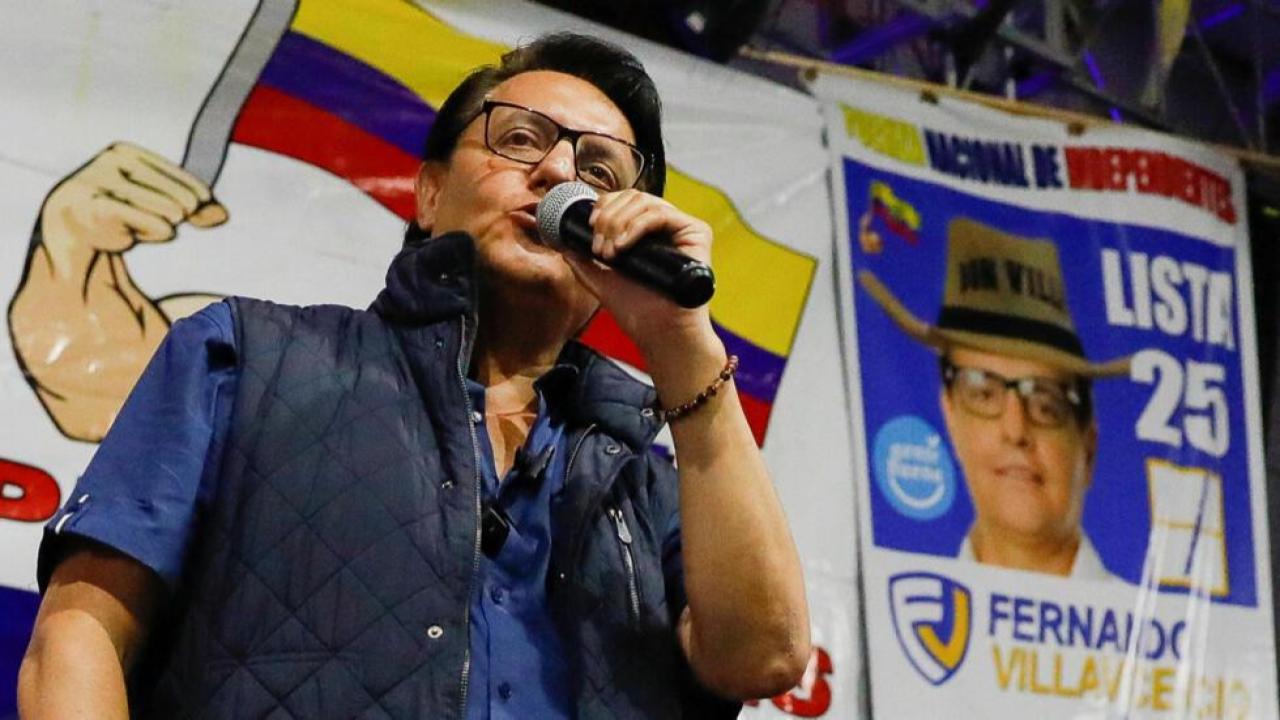


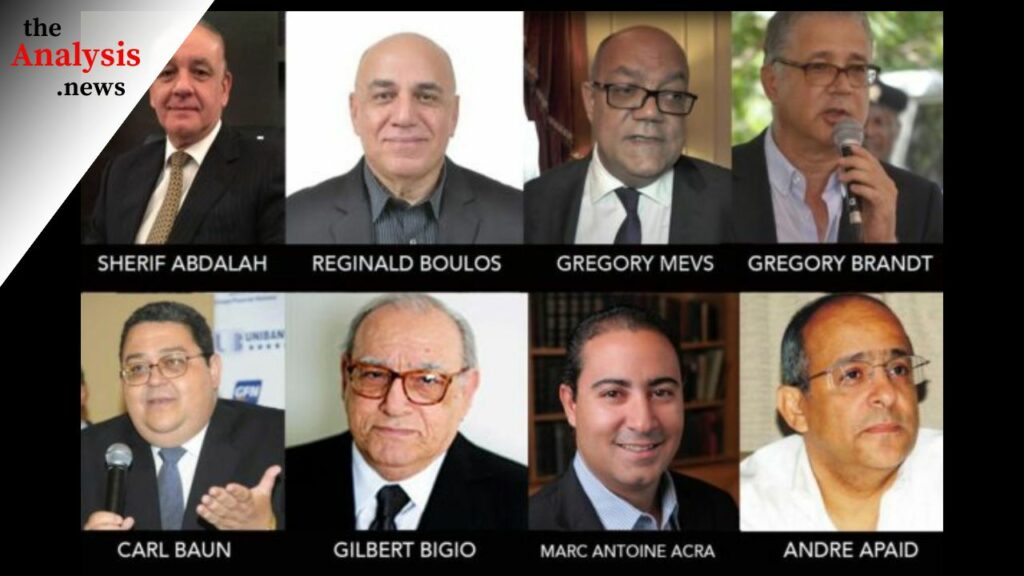
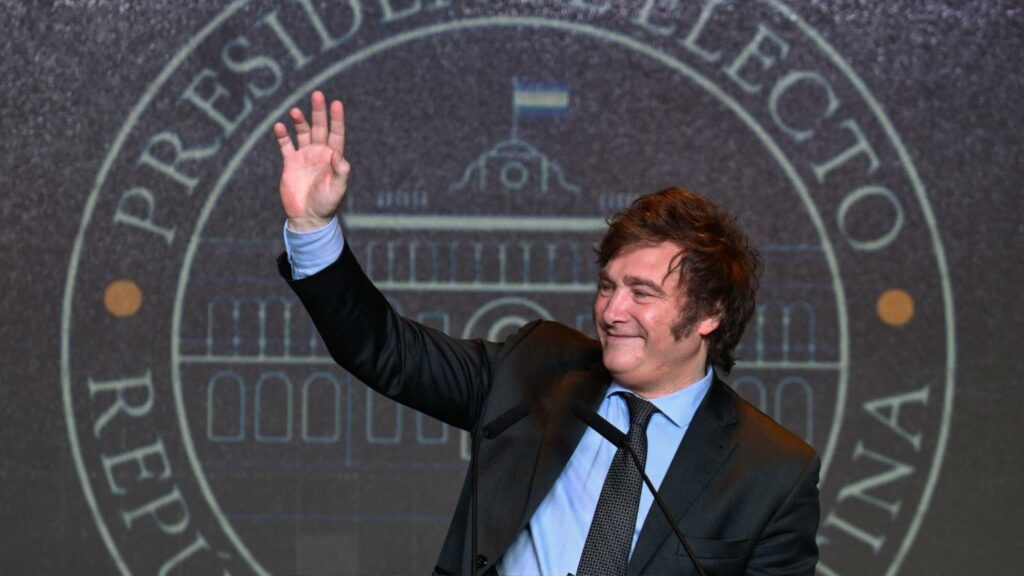
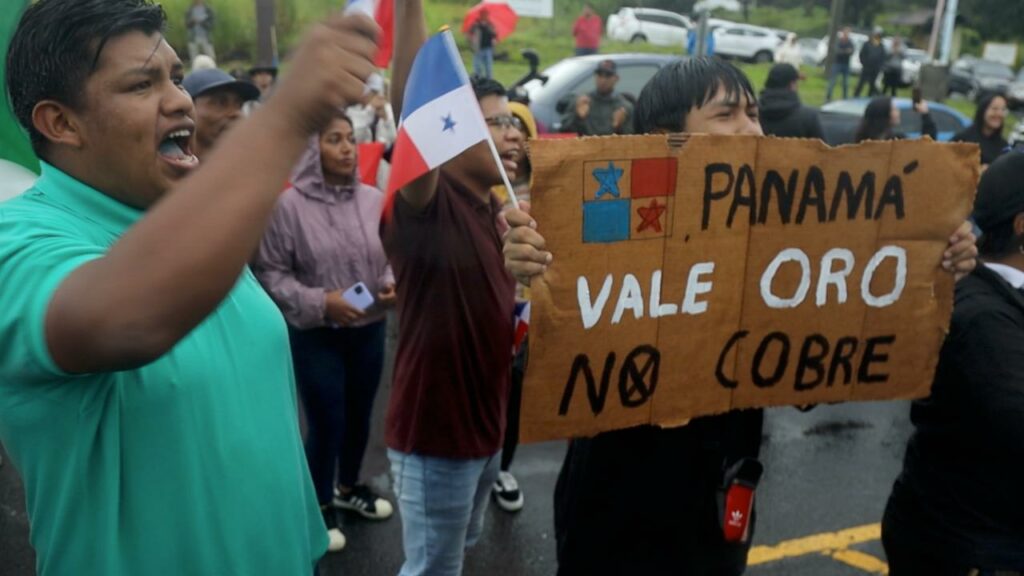
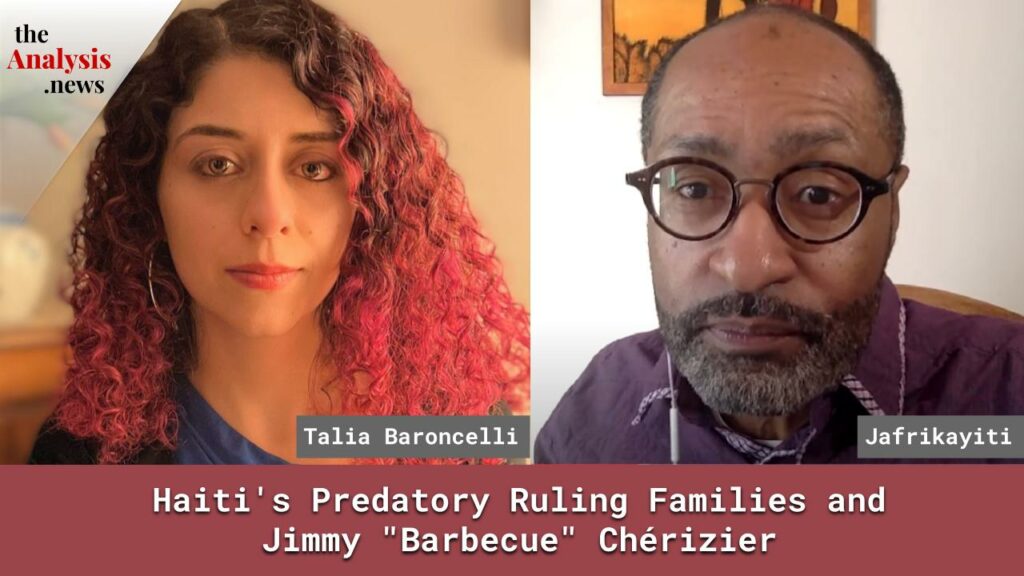
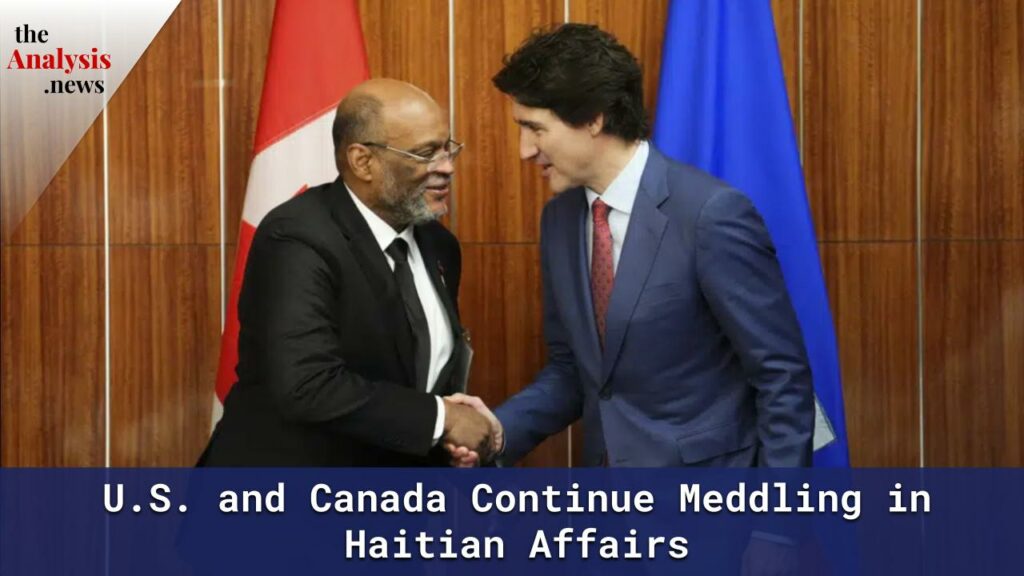
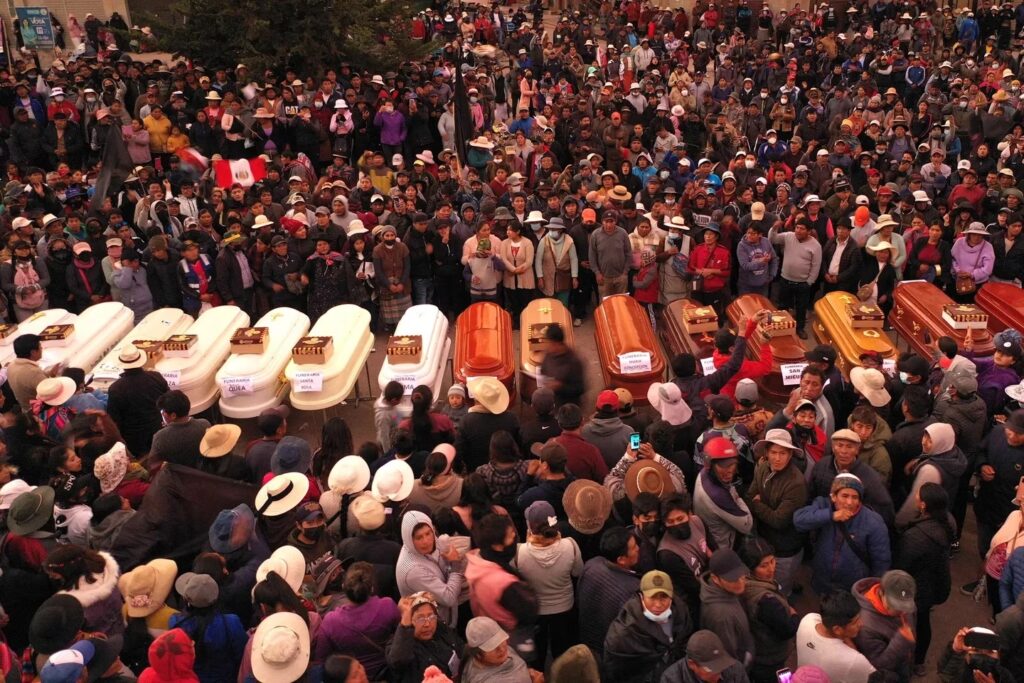
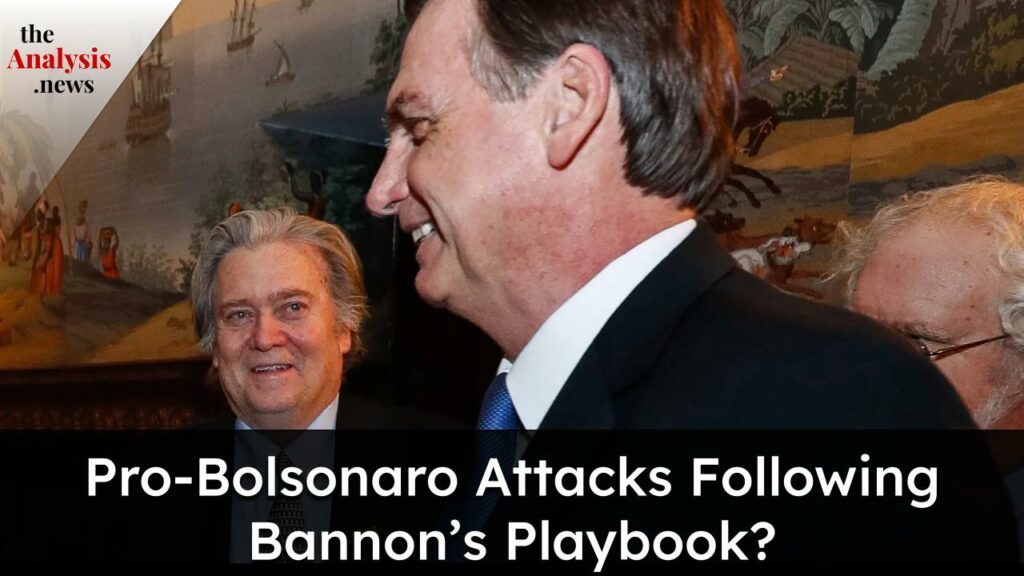
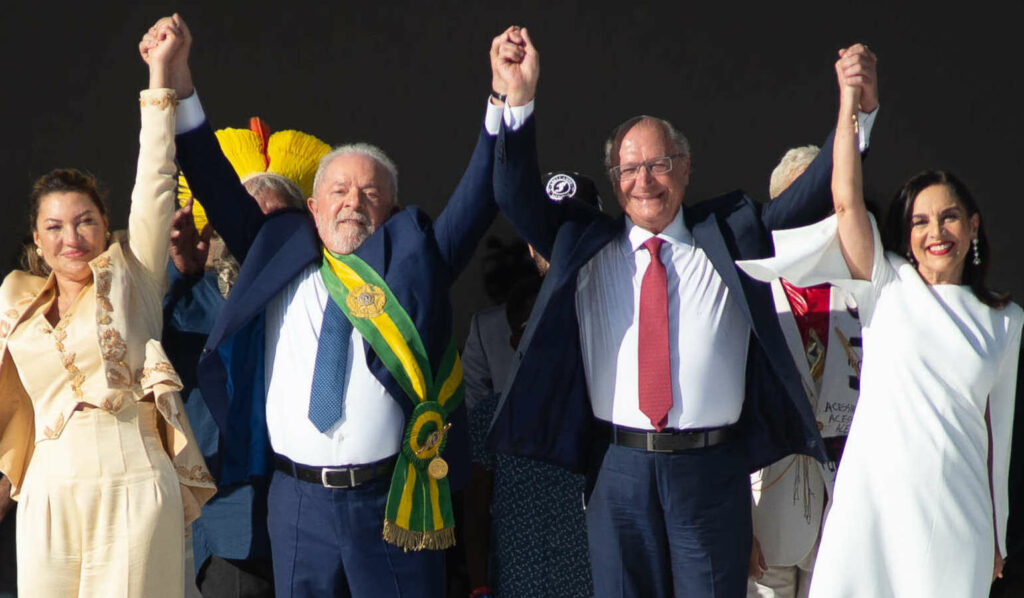
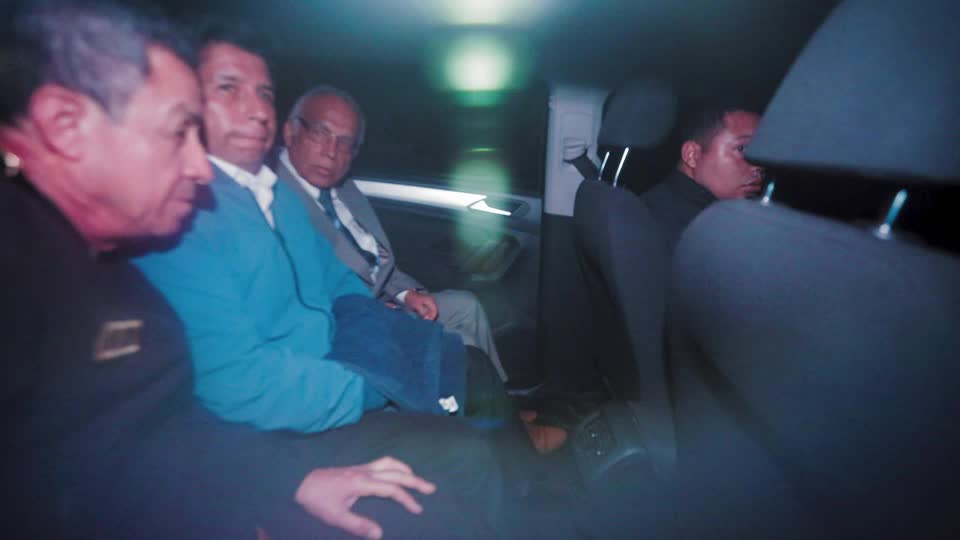
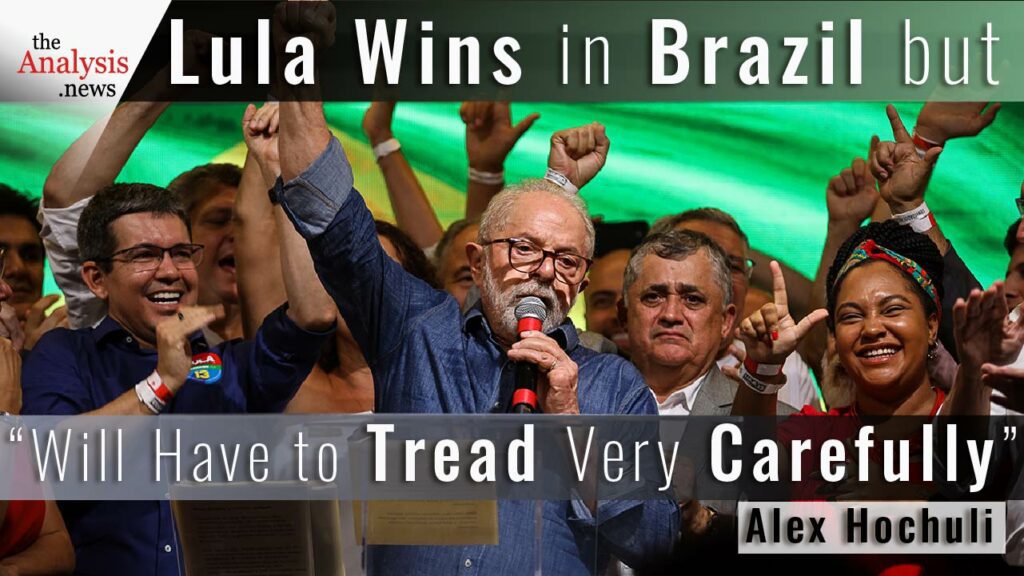
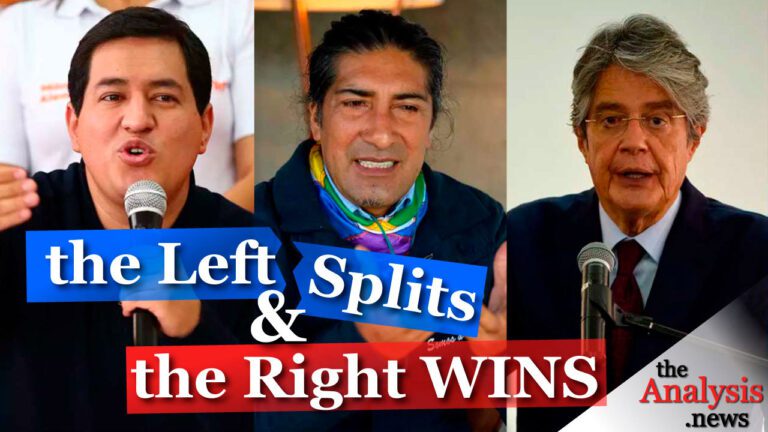
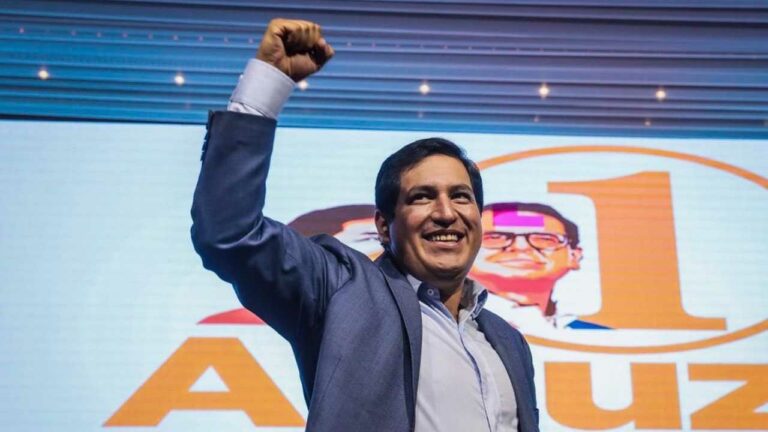
Why no mention of the fact that the hit men were Colombian, their connection to drug cartels?